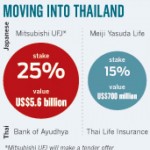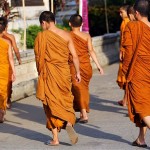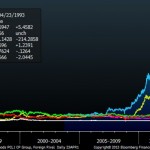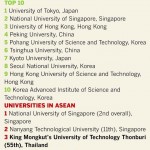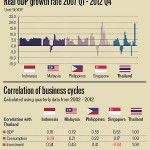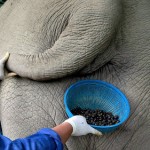Thai horror film-makers sink teeth into south-east Asian market

The flood of Chinese domestic blockbusters since the turn of the year is the strongest hint yet that the country is capable of being a Hollywood for Asia, and setting the cinema agenda for the region. But it’s not the sole player around. At the end of March Thai audiences flocked to see horror comedy Pee Mak Phrakanong – based on the Mae Nak folktale about a man who returns from war and unwittingly settles back in with the ghost of his wife, who has died in childbirth. It had the second biggest opening (21.2m baht/£478,000) ever for a Thai film, and with over 300m baht to date, it is closing on the all-time box-office record (550m baht) held by 2001’s war epic The Legend of Suriyothai.
Thai audiences seem to love their history: their domestic all-time top 10 is dominated by it, including Suriyothai, the King Naresuan series – about to get its fifth instalment – and the 1999 version of the Mae Nak legend (set in the late 18th/early 19th centuries).
But it’s an irreverent take on tradition that has pulled people in for this one. Pee Mak Phrakanong, directed by Banjong Pisanthanakun (also responsible for 2004 global horror hit Shutter), has been transformed from a lovelorn, nostalgic fable to a slick comedy that affectionately teases source material deeply embedded in the Thai collective consciousness. There have been about 30 film adaptations of the story – including animation, porn and, last year, a 3D version.
As well as making the most of photogenic soap stars Mario Maurer and Davika Horne, Pisanthanakun’s version adds copious pop-culture references – to the likes of The Last Samurai and David Blaine – and 21st-century snark, making fun of ineffectual monks. It’s that injection of attitude that sets Pee Mak Phrakanong on a nimble contemporary tangent to the country’s history-obsessed box office: it’s easily outpaced second world war love story Khu Kam, another national favourite that has seen multiple adaptations, which was released at the same time. “The reason Pee Mak makes crazy money is because it’s loose and funny,” writes the Bangkok Post’s Kong Rithdee, “and perhaps because it triggers this cool, shallow belief in the star-crossed lovers overcoming the odds set by ideology and death.”
The film also seems to be a leap in quality for an industry that has struggled commercially over the last few years and only has a global presence thanks to its arthouse branch, led by Apitchatpong Weerasethakul and Pen-Ek Ratanaruang. “The real good news is that Pee Mak is actually pretty good,” writes Wise Kwai, for Thai newspaper the Nation, “Distinguishing itself from most other Thai horror comedies, this one follows an actual script, which is smartly co-written by the director.”
Thailand could make horror comedy – compared to the more baleful Japanese spookers, or the bloodier Korean variants – its speciality: Kao Krian, about ghosts scuppering a property developer, and Countdown, by Pee Mak’s youth-focused studio GTH, are just two of the recent films.
And it’s a good time to export horror comedy, with a steady flow of it – especially from the zombie contingent – having carved out a significant market for it in the last decade. Pee Mak could be too geared to Thai palates to travel all the way around the globe, but judging by a tight south-east Asian release schedule (Indonesia, 5 April; Hong Kong, 16 May; Cambodia, 23 May; Malaysia, 6 June; Singapore, 13 June; Taiwan, 6 August), it fancies its chance in the neighbourhood.
So it should: it draws on the vein of wronged-woman folklore that recurs throughout Asia (Ringu drew similarly on Japan’s Yotsuya Kaidan story), and there seems to be a strong appetite for horror in that part of the world. Indonesia is a prolific producer of films with the same fetid perfume of tropical morbidity that underlines the Pee Mak legend; Malaysia has been banging horror films out since a three-decade ban on the genre, for being contrary to Islam, was lifted in 2003.
If Pee Mak can secure a release in the massive Chinese market, and stake a claim for the Thai industry, that would be fine news for film diversity in the eastern hemisphere.
• Next week’s After Hollywood will ask whether it’s crunch-time at the Chinese box office for Hollywood. Which global cinematic stories would you like to see covered in the column? Let us know in the comments below.
From: http://www.guardian.co.uk/film/2013/apr/16/thai-horror-film-pee-mak






















